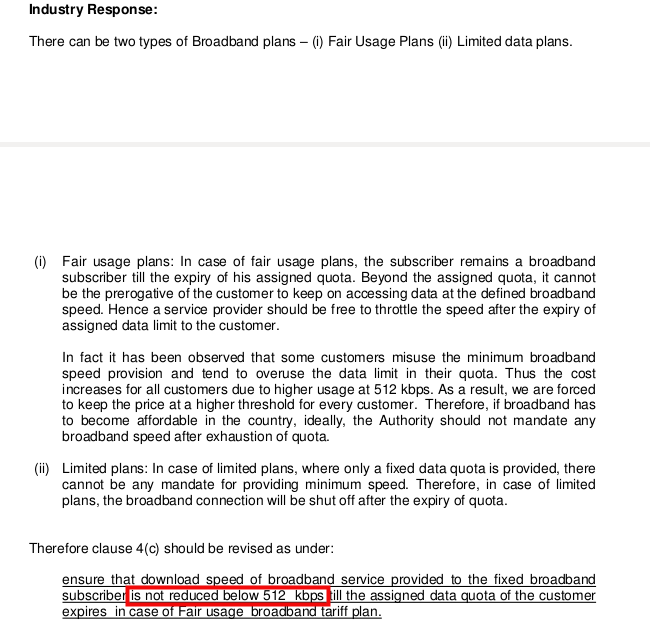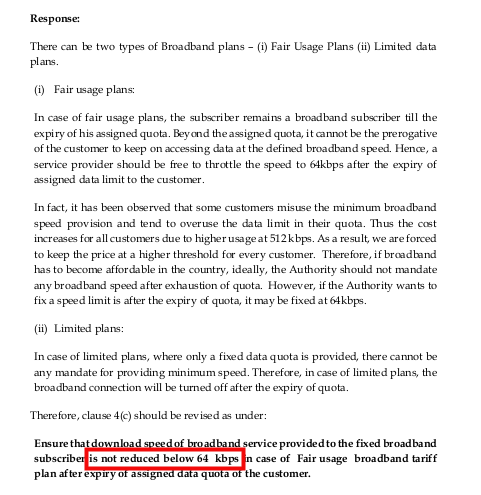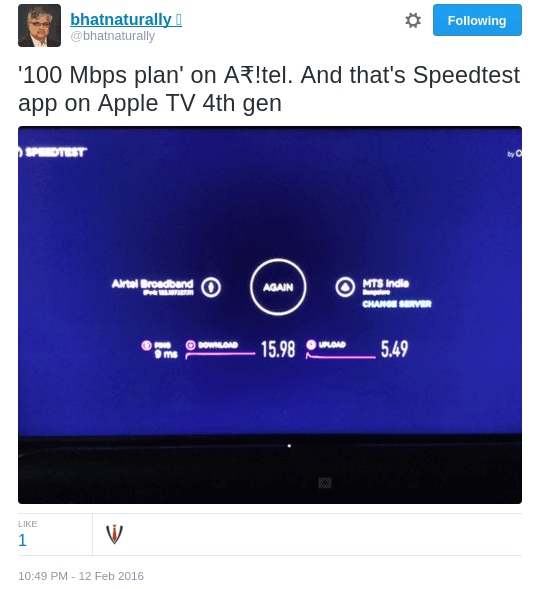Recently TRAI had sought comments for a draft direction on delivering broadband services in a transparent way. In addition, to seeking comments on transparency measures like clear information of tariff plans and timely usage alerts, there was a key element on broadband speeds -
ensure that download speed of broadband service provided to the fixed broadband subscriber is not reduced below 512 kbps in any broadband tariff plan
What caught our attention among the several comments was industry leader Airtel's. Airtel sought this change for the above direction -
Ensure that download speed of broadband service provided to the fixed broadband subscriber is not reduced below 64 kbps in case of Fair usage broadband tariff plan after expiry of assigned data quota of the customer.
This in our opinion is nothing but taking things to the pre-broadband or the dial-up era. What's more interesting is Airtel's rationale to seek the change. According to Airtel, some customers misusing minimum broadband speed provision and tending to overuse the data limit in their quota is the reason for increased broadband costs for everyone.
The story does not end here. There was a striking similarity in the AUSPI and COAI submission and Airtel's submission. It was more like the Airtel's demands become industry's demands. Refer screenshots -
AUSPI and COAI
Airtel
Our Take
It is unacceptable to seek a downgrade to 64 kbps. After all, it is the same providers who talk about next generation networks all the time. In contrast, TRAI must consider announcing the minimum broadband speed as at least 2 Mbps.
What about the minimum speed guarantee before FUP limit is surpassed? It is a fact that majority of the broadband customers (both wired and wireless) in India do not see promised speeds. Here is a classic case, again from an Airtel customer -
We find it unfortunate that ISPs in a bid to compete in terms of speeds promised extravagant speeds with a *up to* clause in small text.
Note: It is not necessary that all the comments would be implemented but if telcos had their way and we the citizens don't take part in the decision-making process we run the risk of losing out. Just like we all campaigned and made a positive impact on the net-neutrality front, let's keep our eyes open and act when the need arises. In this front, at TelecomTalk, we plan to play a more active role in the coming days.


















